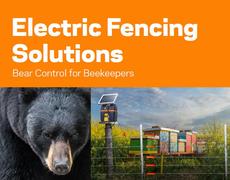Electric fences are commonly used in agriculture to contain livestock and protect crops. But have you ever wondered how they actually work? Let's dive into the science behind electric fences.
What is an Electric Fence?
An electric fence is a barrier that uses electric shocks to deter animals or people from crossing a boundary. It consists of a power source, wires, insulators, and a controller. When an animal or person touches the fence, they receive a painful but harmless electric shock.
How Does an Electric Fence Work?
Electric fences operate on the principle of completing an electrical circuit. The fence energizer, also known as the power source, sends an electrical pulse through the wires. The wires are connected to insulators, which prevent the electric current from flowing into the ground. When an animal touches the wire, it closes the circuit, allowing the electric current to pass through the animal and back to the energizer, delivering a shock.
Types of Electric Fences
There are two main types of electric fences: pulse and continuous. Pulse electric fences deliver a short, high-voltage pulse of electricity at regular intervals, while continuous electric fences provide a constant low-voltage charge. Both types are effective at containing livestock when properly installed and maintained.
Benefits of Electric Fences
Electric fences offer several advantages over traditional fences. They are cost-effective, easy to install, and can be powered by solar energy. Electric fences are also versatile and can be used in various terrains and weather conditions. Additionally, they are safer for animals compared to barbed wire fences, as the electric shock is a brief and memorable deterrent.
Considerations for Using Electric Fences
While electric fences are an efficient way to contain livestock, there are some factors to consider. Proper grounding is essential for the fence to work effectively, as poor grounding can result in a weak electric shock. Regular maintenance, including checking for vegetation growth or damage to the wires, is also crucial to ensure the fence remains operational.
Now that you understand the mechanics of an electric fence, you can appreciate the technology behind this modern agricultural tool. Electric fences provide a safe and reliable method for managing livestock and protecting crops, making them a valuable asset for farmers and landowners.





